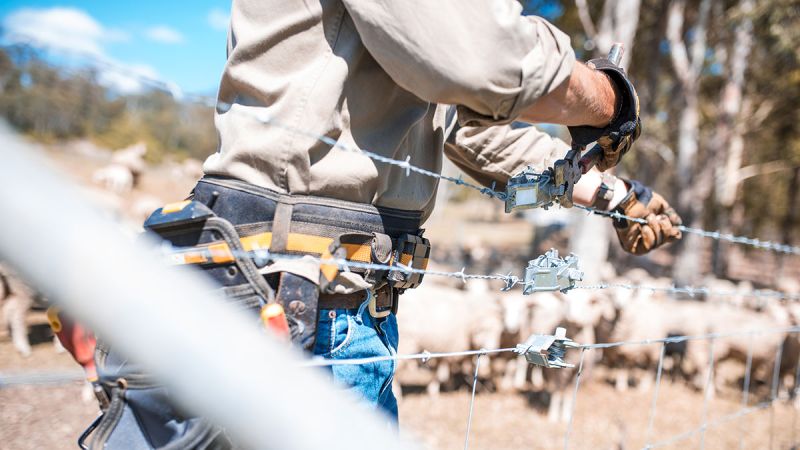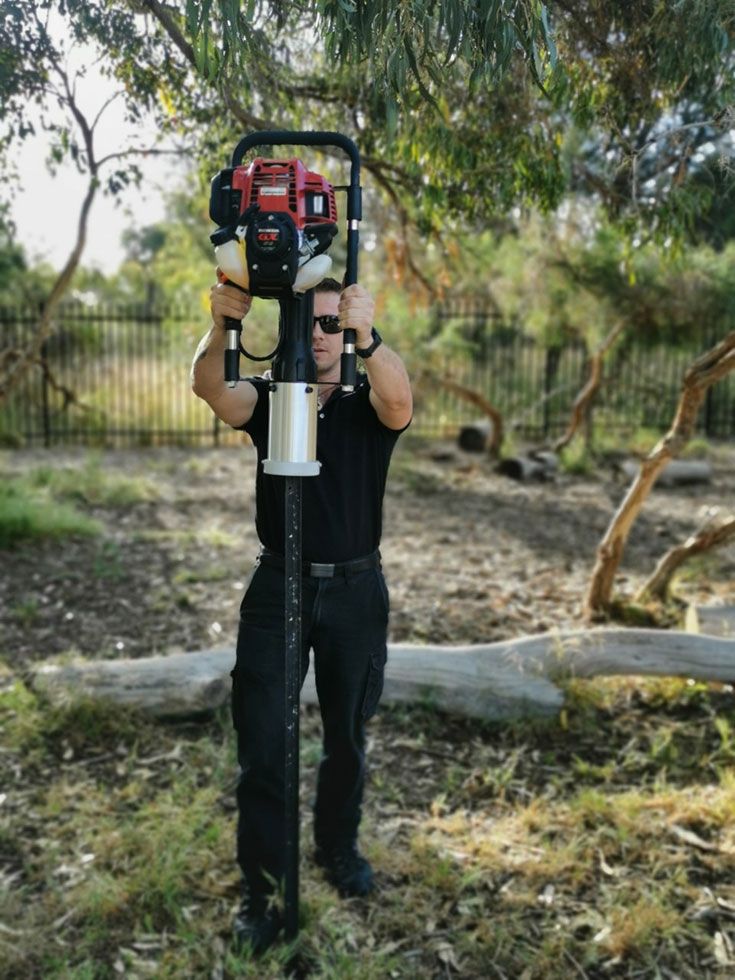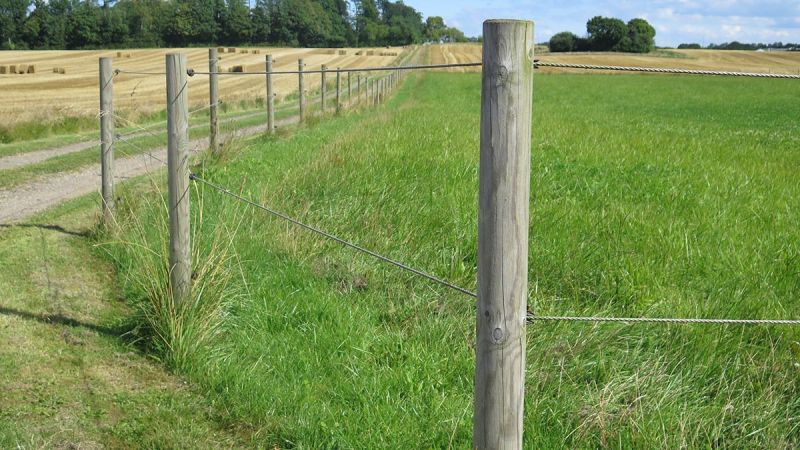WANT A GREAT DEAL?
Add products & we'll be in touch soon!


Must-Have Tools for Constructing a Fence
In the planning stage of the fence, you will need to map out the area and the number of posts. Here you will need measuring and levelling equipment, including a measuring tape and spirit level. One of the most vital elements is ensuring each post and rail is level. Lopsided fencing will be more likely to fall and deteriorate and be a potential hazard for people and livestock.
Read on to find our top fencing tools picks that we think are must-haves.
Auger
To install a fence, you need to drill holes in the ground. This means you will need an auger, a tool used to bore holes efficiently. It is easier and more exact to bore a hole using an auger, than a shovel to dig one.
Augers are called by different names, such as drilling tools, borers, wimbles, or gimlets. These can be used for a broad assortment of tasks by switching drill bits. Drill bits for augers are available in various sizes ranging from 2 to 18 inches. They also come in several types: handheld augers or other models that can attach to motorised equipment like tractors, cranes, skid steers for bigger projects. Different kinds of auger bits are available for different jobs.
Post Rammer
When constructing a new garden fence or stock fencing for the farm, a ‘Post Rammer’ or ‘Driver’ is a cheap tool that will make the installation of a fence efficient.

This tool is available as:
Manual Post Rammer
This type drives posts into the ground by manually impacting the top of a post or pole with a heavyweight. The force applied pushes the post deep into the ground.
The Electric Post Rammer
For people looking to install a fence with minimal effort, the electric post rammer is for you. This tool strikes the post quickly and frequently, for a more precise insertion into the ground. This type of post rammer is ideal when working with smaller diameter posts. If you are working rurally, the electric post rammer can be connected to a generator for power supply.
Gas/Petrol Post Rammer
The gas or petrol post rammer works similarly to the electric tool but with an advantage that it is portable. This type of post rammer will be ideal if you are working in rural conditions but don’t have access to a generator.
Tractor Mounted Post Driver
For large boundaries or animal fencing projects, great industrial options are made possible by heavyweight post rammer accessories for a tractor’s three-point linkage.
Post rammers are ideal for stock fencing on paddocks and boundary fencing. This tool makes it much easier than digging a hole or using a heavy mallet. It is made in a simple design but is highly effective for installing fence posts.
Joiner
Steel, polymer, and other types of wire are used for a variety of purposes; such as fencing, repairs, binding construction materials, or creating a tension wire.
Although wire is an incredibly versatile and flexible material easily bent, twisted, and tied, it isn’t particularly easy to join two ends together steadily. It can be a time consuming and difficult process.
Joiners are designed to join two pieces of wire together creating tension and hold with one simple move. In some models, they have small fasteners with rollers allowing for easy insertion of the wire. They are quick and simple to utilise, making your wire-based projects easier, regardless kind of work or sort of wire you are working with.
Once inserted, the wire cannot be released, but it can be pulled taut. Manufactured in a range of sizes, joiners are made from anti-corrosive elements and can be used with several types of wire and cables. They are adjustable and as the wire loosens over time, they can be re-tensioned.

They are mostly used to:
Make Fast Repairs
Anyone who uses wire fencing is aware of how time-consuming and costly repairs can be. With a joiner, you can make cost-effective and time-effective repairs.
Make Fast Joins
While it is possible to bend and knot some wires, it is mostly a labour-intensive process, particularly when working with heavy or barbed wire. In the case of polymer wires or heavy cables, knots are not an option.
Double Back Wires
Often, you will need to create tension by wrapping the wire around an object, then joining onto itself again. Traditionally, the method of joining the wire back to itself involves screws and holding the wire tightly in place while it is clamped down. Not only is this time consuming, but it is labour intensive and does not always allow for tension adjustment later.
This process is made much faster using a wire joiner as the wire is inserted into the fastener and slides down to where it will be meeting the end as it doubles back on itself. The free end is wrapped around and pushed through the fastener. The tension can then be adjusted as desired, and the joiner will hold tight.
Turn Corners
Occasionally in the process of wire fencing, you have a meeting place at a corner where the fencing makes a 90-degree turn in one direction while continuing straight at the same time creating a T-corner in the fence.
Wire joiners make it easy to connect the two sections of fencing as it makes that turn. They can hold the wire tight in two directions, permitting the new wire to branch off and fan out smoothly, making the turn in the fence. This makes setting up your fence and posts quicker, and implies you need less hardware and less labour to get done with the task.

Tensioning tool
A Tensioning Tool is a wire tensioner instrument that manages and regulates the load applied to it. They work with many types of wire; barbed wire, electric fence wire, horse fencing, or net wire. Using a tensioning tool is the fastest and most cost-effective way to remove slack out of your fence line.
Tamping tool
A fencing tamper is a soil rammer that has a round head specialised for pushing soil into fence post holes. Its round end makes it suitable for fencing applications where the post hole is most often circular. Due to the small size, tamping tools are also useful when access to a small space is needed.
The fence tamper is used to pack soil back into the hole after a post has been inserted, securing it in place. There are numerous types of tampers, and most have an average weight of 4kgs.
Using rammed soil around fence posts rather than concrete is most preferable, as, in a concrete-set post, there is a danger of water congregating at the bottom and in time decaying the wood.
Before you start constructing your fencing, make sure you spend time planning and measuring. Then can you organise your project to keep track of where you are in your process as it relates to the final tools you will need for the project.
If you’re ready to launch into your fencing project, check out our tools at Direct Trades Supply today.
Popular Articles

Company
123 Kelvin Road
Maddington WA 6109
P: 1300 123 387 (DTS)
E: [email protected]
Opening Hours
6:30 AM - 5:00 PM Mon-Fri
7:30 AM - 12:00 PM Sat
Closed Public Holidays












